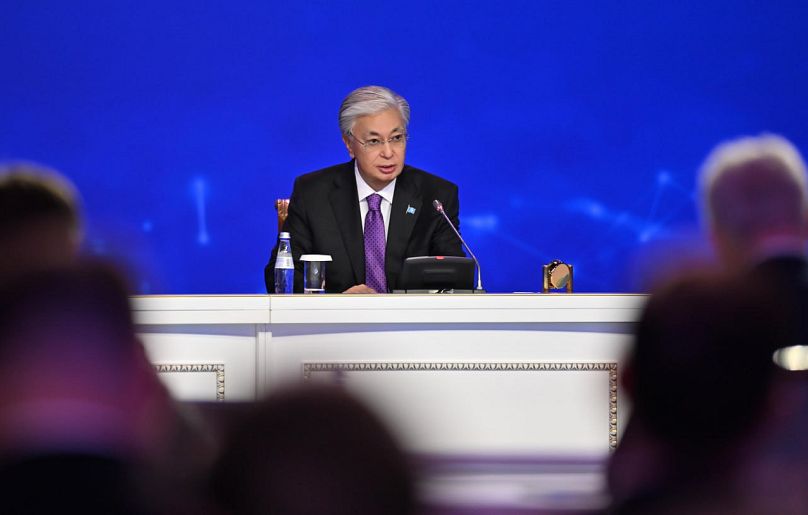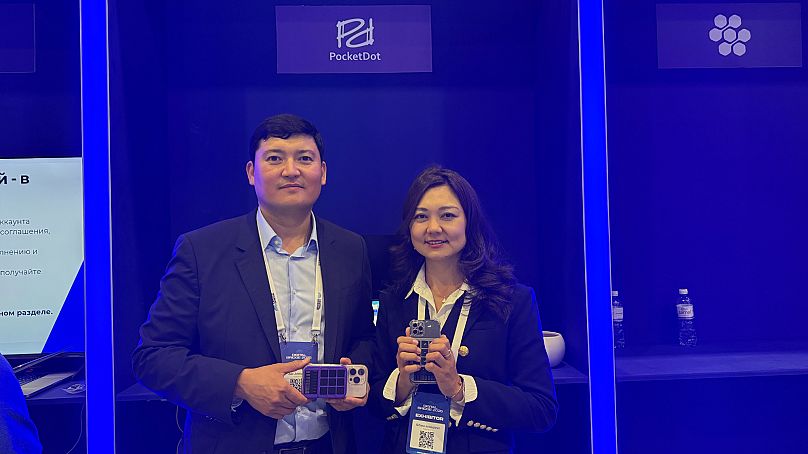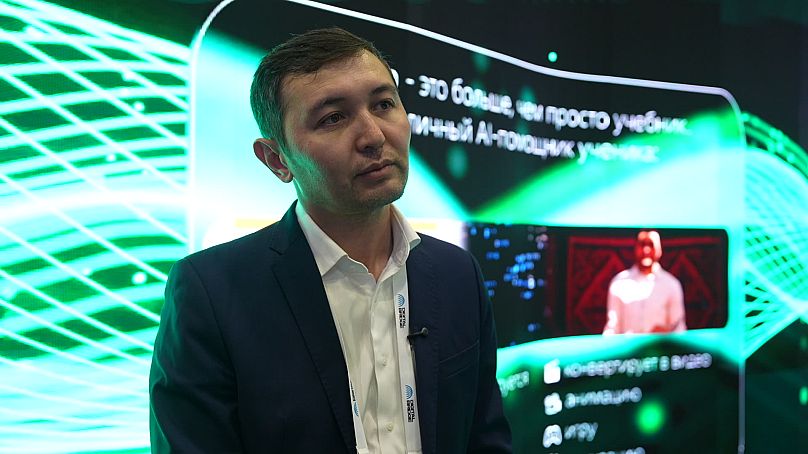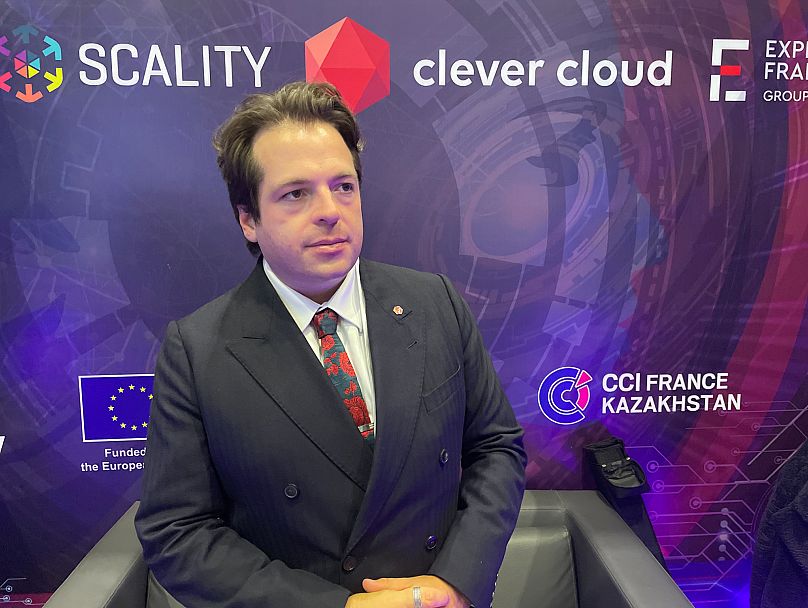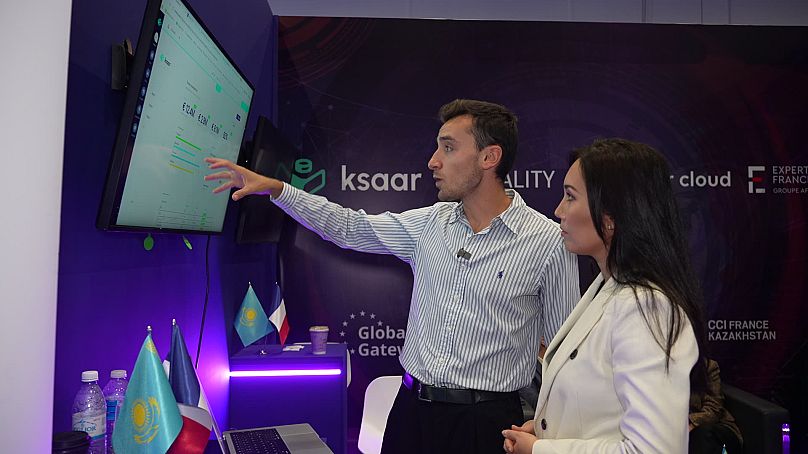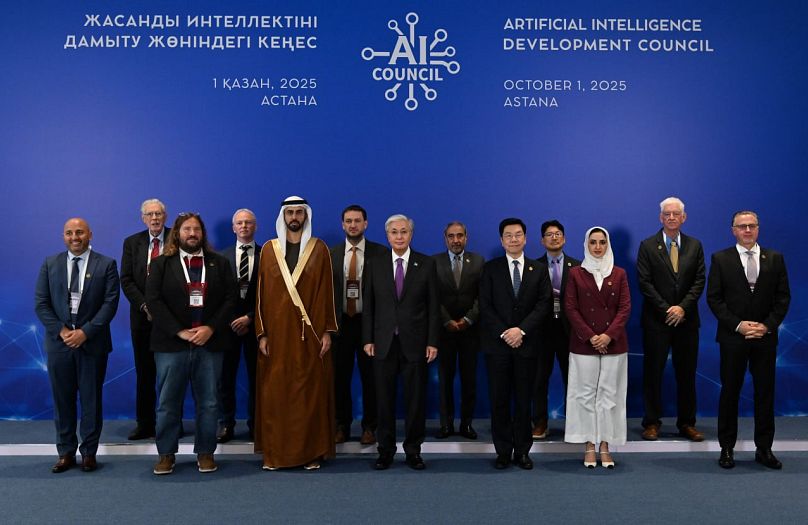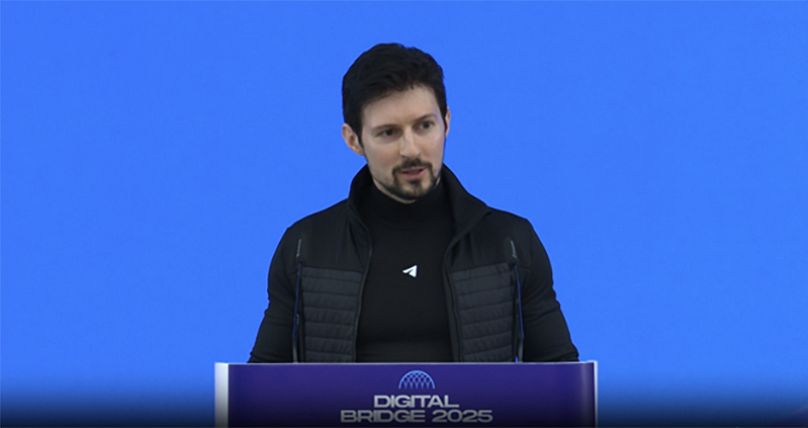An AI-powered director just joined the board of Kazakhstan’s sovereign wealth fund — and it gets a vote.
Kazakhstan’s sovereign wealth fund Samruk-Kazyna has unveiled an AI-generated independent board director, potentially the first of its kind in Central Asia. The system, called SKAI (Samruk-Kazyna Artificial Intelligence), will be able to vote on decisions concerning the fund’s activities, like strategic, financial and governance. Trained on internal documents dating back to 2008, the machine director is designed to support more accurate and balanced decision-making.
 ADVERTISEMENT
ADVERTISEMENT
 ADVERTISEMENT
ADVERTISEMENT
SKAI runs in a closed circuit on Kazakhtelecom’s Al Farabium supercomputer, the second most powerful in the country. It relies on the Kazakh-language model Alem LLM, and allows data to be processed locally without leaving Kazakhstan.
The AI director was presented to President Kassym-Jomart Tokayev during the 2025 Digital Bridge forum in Astana. — the largest tech forum in Central Eurasia.
The forum comes on the heels of the UN General Assembly, where President Tokayev reaffirmed Kazakhstan’s commitment to the Global Dialogue on AI Governance. It is a platform designed to bring states and stakeholders together to develop international guardrails for AI management.
Kazakhstan as the regional technological bridge
Kazakhstan is positioning itself as an early adopter of artificial intelligence in the region, aiming to become a fully digital economy within three years.
The country is working to adopt the Digital Code, which will set the framework for the digitalization of the economy, education, healthcare, and public administration. Meanwhile, the law on artificial intelligence is under review in parliament and will soon be forwarded to the Senate for approval before being signed by the president.
“Today, more than 92% of public services are available online. Last year, cashless payments in the country accounted for over 85%. In just the first six months of this year, citizens of Kazakhstan received 26 million digital services — half of them via smartphones. These are solid results. At the same time, it should be noted that the development of AI is moving at a very fast pace, which requires us to constantly update our approaches,” said Tokayev during the first AI Council meeting, at the forum.
International experts say Kazakhstan’s technological potential is rooted in its strong mathematical tradition and engineering talent.
“The US leads the world in ideas, semiconductors, venture capital ecosystems, and best application in business for AI, but the East also plays a role. China builds the most efficient models, it makes them opensource and shares with the world. China has the ability to build consumer apps like TikTok. And China has a government with an ecosystem that is built to connect the business to the academia and venture capital. These systems can all work together. I think that Kazakhstan is in a wonderful position as the digital bridge that will connect not just academia to businesses but also the East to the West,” said Kai-Fu Lee, CEO of Sinovation Ventures, and a member of Kazakhstan’s newly formed Council on AI.
Kazakhstan is building a unified artificial intelligence ecosystem with the launch of its first AI research university and the unveiling of the international AI Centre — Alem AI (“World AI”) — in Astana. In his speech at the forum’s plenary session, Tokayev described the center as a “factory of ideas and innovations.” He also revealed that a second national supercomputer cluster is under development, while the first already boasts nearly 2 exaflops of power — capable of performing 2 quintillion calculations every second.
Braille device for instant messaging and other solutions
Nearly 200 Kazakh startups are offering solutions to real-world problems. Among them is Pocketdot — the first pocket-sized device with a sensory braille display and keypad that connects to a smartphone. It helps blind users communicate privately by converting information into braille. For instance, a photo of a menu or a room can be turned into text via apps, and Pocketdot transcribes it into braille. This makes chatting in messengers, scrolling social media, shopping online, taking courses, and even making bank transfers accessible to blind users.
“When the user receives a message or needs to send something, they receive a vibration or sound notification. With specific gestures and swipes, they can launch an application, such as WhatsApp, and type text on the phone using the Braille sensory keyboard. In the same way, they can also read back what they have written,” said Pocketdot founder Adil Jussupov.
Meeting the region’s soaring demand for education, Kazakhstan’s edtech frontrunner — CodiPlay — is emerging as a potential game-changer. The startup is valued at more than €85 million. The app teaches digital skills through gaming, engineering, and robotics. It’s already used in over 1,200 schools across 13 countries, including the US, UK, the Middle East, and North Africa. With more than a million learners worldwide, CodiPlay has been recognized by the UN as a digital public good.
“In this area of Astana, there is a big concentration of AI driven and digital driven guys who want to create good startups and there is good networking. My friend helped me to talk with Zimbabwe or MENA and other markets. We have co-founders from South Korea and also from Silicon Valley, but we have a company here because of AIFC (Astana International Finance Centre) facilities which help us create companies here and to attract investments. For investors, it's very important to have British law. All these financial institutions, this financial district and centre give us additional opportunities to attract investments from international VCs,” said CodiPlay CEO Danabek Kaliazhdarov.
Europe plugs into Kazakhstan’s AI revolution
France’s Clever Cloud joined forces with Kazakhstan on the QazCloud project — a step toward boosting the nation’s digital sovereignty. Unlike big hyperscalers such as Google, whose cloud services are managed abroad, QazCloud will be operated on Kazakh territory. Behind the scenes, versatile digital storage platforms like Clever Cloud keep the apps and websites people use every day running smoothly — from banking and shopping to online learning — making sure they stay fast, secure, and always available.
QazCloud will soon be open to the public, helping Kazakhstan not only secure its own digital future but also export cloud services worldwide with greater value.
“If you’re looking at what people use on top of cloud, they are not using only simple service but also managed service which are more software than infrastructure. And what we provide is exactly that. It’s the ability to have the same level of service or value as Google or Azhar but on top of real sovereign cloud in Kazakhstan,” said the Clever Cloud CEO Quentin Adam.
France’s Ksaar is looking to step in to help Kazakhstan tackle digitalization hurdles. Its platform lets anyone without coding skills build enterprise software and automate workflows. Ksaar hopes to streamline Kazakhstan’s digital transition by turning Excel files and government documents into ready-to-use apps, fast and loss-free.
“If you have a specific workflow and you have a work process, you don't know how you're going to tackle it. You have the data stored somewhere, but you don't know how to use it, because that comes into play. We make sure that you can you use the data as much as you want. And we can plug AI into this,” said Ksaar account manager Charles Chokre.
Kazakhstan is tapping into AI diplomacy
Europeans along with other international experts will oversee Kazakhstan’s AI policy. French innovative educator Nicolas Sadirac, German-American futurist Olaf J. Groth, alongside over a dozen other world specialists are now part of the nation’s newly formed Council for Artificial Intelligence Development. The government has pledged to fund council members’ fellowships at their home universities.
The French innovative educator Nicolas Sadirac, is spearheading the first regional AI school in the western city of Aktau. The institution will be open not only to schoolchildren but also to students, researchers, and entrepreneurs.
Stanford professor Paul Kim will help select the top 100,000 students for an intensive AI entrepreneurship module. The most promising startups will then move on to incubation and acceleration programs.
Education as funnel for export of AI products
Kazakhstan aims to produce more than 100,000 student-led startups each year. It will do so by turning its education system into a startup pipeline.
To build the necessary human capital, the state is rolling out a nationwide free training framework. Public schools and universities are being overhauled, with mandatory AI courses introduced across all higher education institutions. By the summer of 2026, every teacher in the country is expected to be trained in AI. By the end of this year, every undergraduate student in Kazakhstan will have completed the multistage training program AI Sana and received certification in AI literacy and skills.
Earlier this year, the country unveiled its third and most advanced large language model — Alem LLM, created in partnership with AI pioneer Kai-Fu Lee, general director of Sinnovation Ventures and 01.ai. These models are a fast-growing form of AI designed to generate human-like responses to text, voice, or other inputs.
Alem LLM will be embedded into Kazakhstan’s existing e-government infrastructure. Its developers claim that Alem LLM outperforms ChatGPT and Gemini in processing the Kazakh language. The system is open to startups, companies, and international platforms to build custom AI products and services in Kazakh.
Telegram messenger opens a dedicated lab at Kazakhstan’s AI centre
Telegram is stepping into Kazakhstan’s AI scene — launching a new lab inside the Alem AI Centre. Founder Pavel Durov says its first mission pairs the platform with the nation’s powerful supercomputer cluster.
“For the last few months Telegram has been quietly working on a new technology. Technology at the Intersection of Artificial intelligence and blockchain. This technology will allow more than a billion people use AI features powered by the centralized computing network in a private, transparent and efficient manner,” said Durov.
The Telegram CEO said he hopes Kazakhstan’s supercomputer cluster will become one of the first major providers of computing power for the network. Earlier this year, in June 2025, the company opened its first regional office at Astana Hub - the largest international technopark for IT startups in Central Asia.
















